How to Keep Your Dog Healthy During Seasonal Changes
As the seasons shift, so do the needs of our furry companions. Whether it’s the transition from warm to cold, or humid to dry, dogs—just like humans—can experience changes in their health, mood, and behavior. These shifts can affect their skin, appetite, energy levels, and even immune response.
To help your pup stay healthy and happy all year long, it’s important to make small but significant adjustments in their routine, care, and environment. In this post, we’ll explore how to keep your dog healthy during seasonal changes with practical, vet-approved advice.
1. Understand How Seasons Affect Your Dog
Each season brings its own set of challenges:
• Spring: Allergens like pollen, grasses, and mold are at their peak. Dogs may experience itchy skin, watery eyes, or sneezing.
• Summer: Heatstroke, dehydration, and paw pad burns from hot pavement are common concerns.
• Fall: Fleas and ticks remain active, and cooler weather can trigger joint issues, especially in older dogs.
• Winter: Dry skin, frostbite, and limited outdoor activity can impact your dog’s well-being.
Understanding how the seasons impact your pet allows you to prepare and adjust their care accordingly.
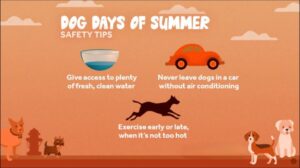
2. Adjust Their Diet According to the Season
Your dog’s nutritional needs can vary depending on activity level and weather:
• Winter: Dogs may require slightly more calories to maintain body heat, especially if they’re active outdoors.
• Summer: A lighter diet may be better during hot months, especially for breeds prone to overheating.
• Spring/Fall: Consider anti-allergy support through omega-3 fatty acids or consult your vet about allergy-safe supplements.
Make sure your dog always has access to fresh, clean water, especially during the summer when dehydration is a major risk.
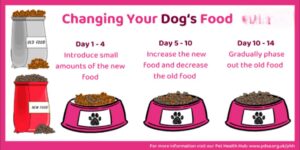
3. Maintain a Regular Grooming Routine
Grooming isn’t just about looking good—it plays a key role in your dog’s overall health:
• Spring/Summer: Shedding increases, so brushing your dog regularly can help remove dead fur and reduce matting. It also helps prevent overheating.
• Fall/Winter: Dogs may develop dry skin. Use a moisturizing dog shampoo and avoid over-bathing. Consider using a humidifier indoors to maintain healthy skin.
Tip: Never shave double-coated breeds like Huskies or Golden Retrievers, even in the summer. Their coats help regulate temperature naturally.

4. Protect Against Parasites All Year Round
Many pet owners mistakenly think parasite prevention is only needed during warmer months. However, fleas, ticks, and even heartworms can persist year-round, especially in warmer or more humid climates.
What to Do:
• Keep your dog on year-round parasite preventatives as recommended by your vet.
• Check for ticks after walks in wooded or grassy areas, especially in spring and fall.
• Keep your yard well-maintained to reduce parasite habitats.
5. Monitor for Seasonal Allergies
Just like humans, dogs can suffer from environmental allergies. If your dog licks their paws, scratches excessively, or has recurring ear infections, allergies could be the cause.
Common Allergens:
• Pollen (trees, grasses)
• Mold spores
• Dust mites
What helps:
• Wipe down your dog’s paws and coat after outdoor play.
• Vacuum regularly to reduce indoor allergens.
• Talk to your vet about antihistamines or allergy-specific medications.
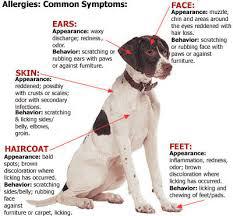
6. Exercise Appropriately for the Season
Summer Tips:
• Walk your dog early in the morning or late in the evening to avoid heatstroke.
• Avoid asphalt and concrete during peak heat—test with your hand: if it’s too hot for you, it’s too hot for them.
• Bring water on long walks and take breaks in the shade.
Winter Tips:
• Get your dog a coat or sweater if they’re short-haired or small breed.
• Keep walks short if temperatures are below freezing.
• Wipe their paws after walks to remove ice melt chemicals and salt.
7. Create a Comfortable Indoor Environment
Your home environment plays a huge role in your dog’s seasonal comfort.
• In Summer: Keep your home cool, allow access to shaded areas, and provide a cooling mat or fan near their resting area.
• In Winter: Offer warm, soft bedding away from drafts. Heating pads made for pets can help arthritic dogs during cold nights.
Pro Tip: If your dog is alone during the day, consider using a pet camera to monitor their comfort and activity levels.
8. Update Their Vaccinations & Vet Visits
Seasonal changes are a good reminder to schedule wellness checkups:
• Spring is a great time to test for heartworm and start flea/tick medication.
• Fall is ideal for senior pet checkups, especially if colder weather affects their joints or mobility.
• Ask your vet if your dog is up-to-date on vaccines that might be seasonally relevant, like the flu shot for dogs (Canine Influenza) or Lyme disease protection.
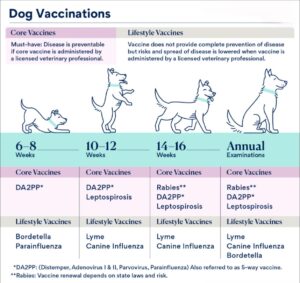
9. Watch for Behavioral Changes
Seasonal transitions can also impact your dog’s mood and behavior:
• Less daylight in fall/winter can lead to lower energy or mild seasonal depression.
• Increased daylight and activity in spring/summer may cause overstimulation or anxiety in some dogs.
Try to stick to a consistent routine—same walk times, feeding schedule, and play sessions to help your dog stay grounded.
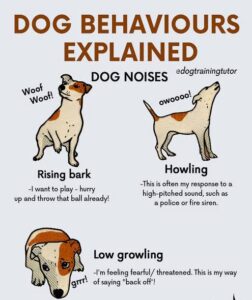
10. Provide Mental Stimulation During Indoor Months
If cold or rainy weather keeps you and your pup inside more often, boredom can become an issue. Bored dogs are more likely to chew, bark, or develop anxiety.
Try These:
• Puzzle toys and treat-dispensing games
• Scent games (like “find the treat”)
• Short training sessions for mental exercise.
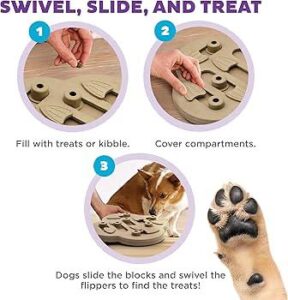
Final Thoughts
Keeping your dog healthy during seasonal changes doesn’t require a massive overhaul—it just takes a little foresight and care. By staying alert to weather patterns, monitoring your dog’s behavior, and making a few seasonal adjustments to their routine and care, you can help your pup thrive all year round.
Remember, you know your dog best. If you notice unusual symptoms—excessive shedding, behavioral shifts, or appetite loss—don’t hesitate to reach out to your vet.
Your furry friend depends on you to keep them comfortable and protected no matter what the season brings!
